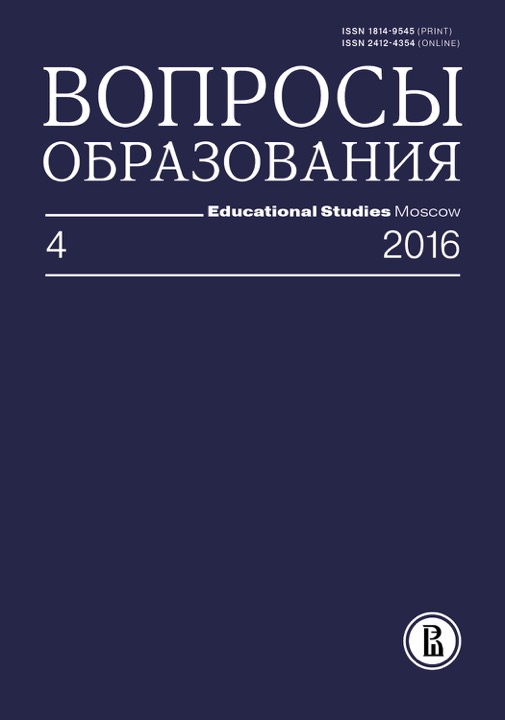School Readiness of First-Graders and Its Factors: Identifying Region-Specific Characteristics
Abstract
Regions of Russia enjoy substantial independence in shaping their own education systems. However, there is extremely little empirical data on the specific features of development, for instance, of preschool and elementary school children in this or that region. This situation renders it difficult to make informed decisions on corrections required to meet region-specific needs. We analyzed basic mathematical and reading abilities of preschoolers in two regional centers — Krasnoyarsk and Kazan. We applied IPIPS study, which allows assessing the skills of children starting school, to a sample of about 2,750 first-graders in the two cities. As we found out, the level of basic mathematical and reading abilities correlated most strongly with such factors as sociocultural capital, preschool learning experience, and language spoken at home. Meanwhile,
location in a specific region had virtually no impact on the skills analyzed.









